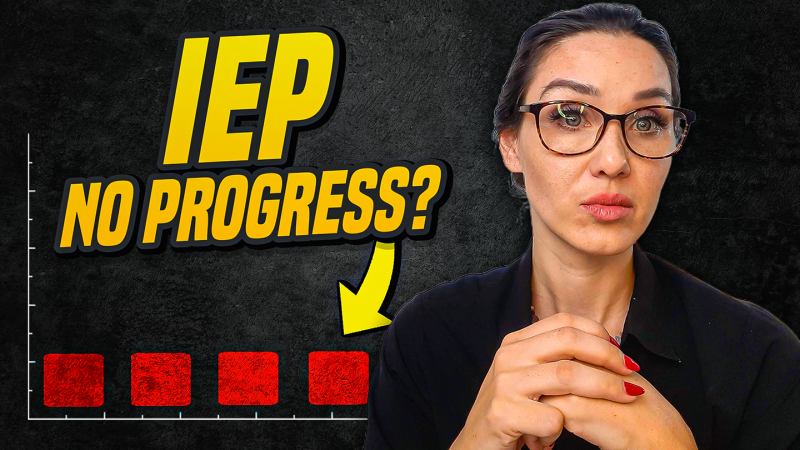
If Your Child is Struggling in school start a free trial of the Learning Success System
What happens when a child's IEP isn't making the progress hoped for? We delve deep into this concern, offering insights and solutions for parents, teachers, and students.
Importance of Data in IEPs
Regular IEP meetings are crucial. Through these meetings, teachers and educational staff present performance data about the child, aiding in understanding whether the set goals are on track. It becomes evident if goals are vague or overly ambitious, which might not be serving the child effectively. The right kind of goal-setting can pave the way for a successful IEP journey.
The Need for Adaptive Teaching
It's essential to acknowledge that traditional teaching methodologies might not be the best fit for every child. For instance, a child with dyslexia could benefit immensely from a multisensory phonics approach instead of conventional reading instruction. Adjusting methods and possibly accommodations, like allowing oral presentations over written reports, can significantly enhance a child's learning experience
It's essential to acknowledge that traditional teaching methodologies might not be the best fit for every child. For instance, a child with dyslexia could benefit immensely from a multisensory phonics approach instead of conventional reading instruction.
Children grow, and their learning needs evolve. As they step into their teenage years, their IEPs should adapt accordingly. It might become more beneficial to shift the focus from strictly academic skills to vocational training and life skills. Preparing them for the challenges of adulthood can be as vital as classroom learning.
Key Takeaways:
Are you looking to foster a growth-oriented mindset in your child and build their resilience and grit?
Look no further than the Learning Success System, a do-at-home educational therapy program that addresses cognitive micro-skills and helps with focus, reading, math, confidence, and more. And now, for a limited time only, a free trial is available for those interested in unlocking their child's full potential. Don't miss this opportunity to invest in your child's future!
Learn everything you need to know about IEP's in this new documentary.
Get the full documentary here
Or watch on Amazon Prime Video









